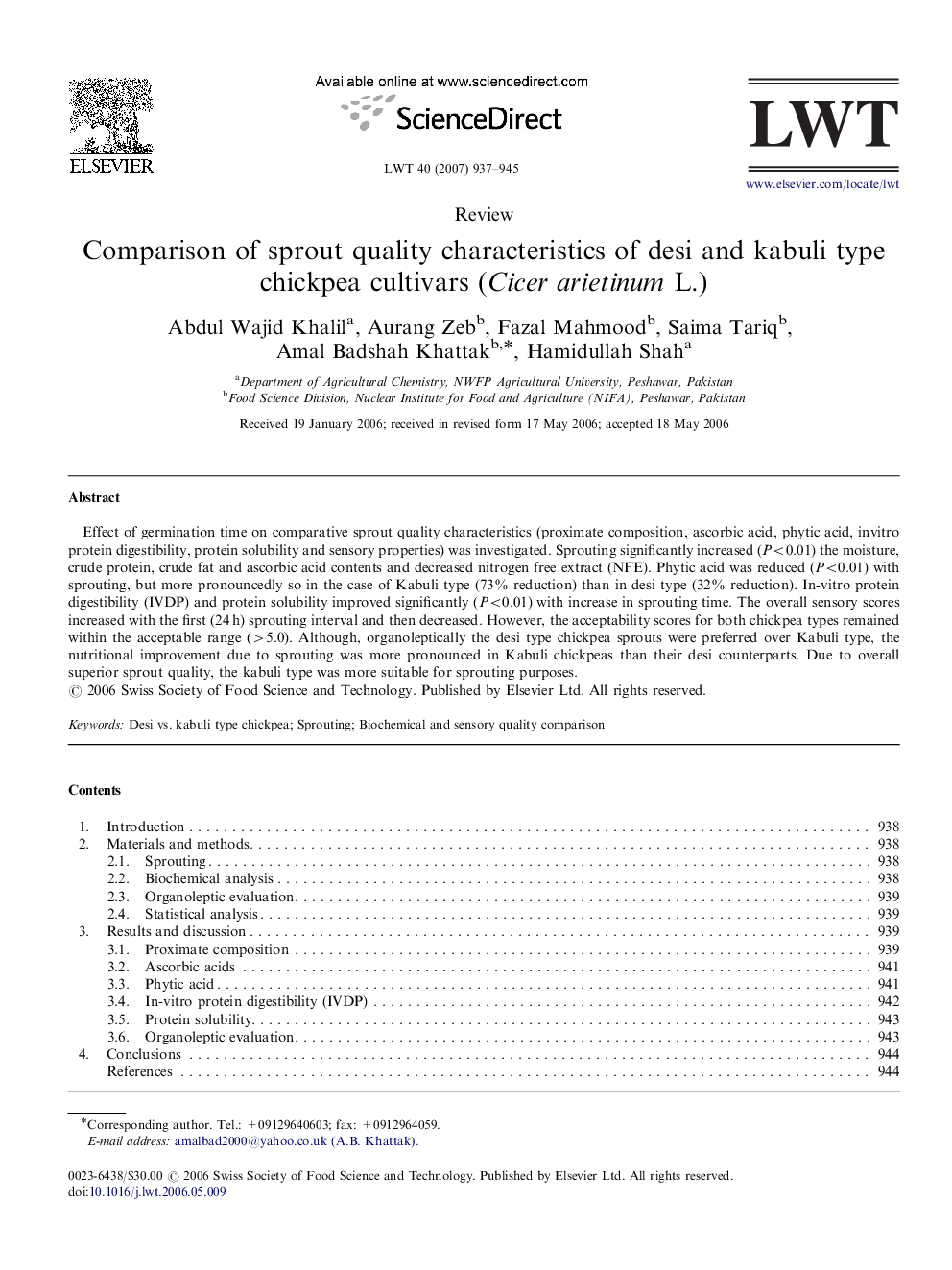| Article ID | Journal | Published Year | Pages | File Type |
|---|---|---|---|---|
| 4565228 | LWT - Food Science and Technology | 2007 | 9 Pages |
Effect of germination time on comparative sprout quality characteristics (proximate composition, ascorbic acid, phytic acid, invitro protein digestibility, protein solubility and sensory properties) was investigated. Sprouting significantly increased (P<0.01) the moisture, crude protein, crude fat and ascorbic acid contents and decreased nitrogen free extract (NFE). Phytic acid was reduced (P<0.01) with sprouting, but more pronouncedly so in the case of Kabuli type (73% reduction) than in desi type (32% reduction). In-vitro protein digestibility (IVDP) and protein solubility improved significantly (P<0.01) with increase in sprouting time. The overall sensory scores increased with the first (24 h) sprouting interval and then decreased. However, the acceptability scores for both chickpea types remained within the acceptable range (>5.0). Although, organoleptically the desi type chickpea sprouts were preferred over Kabuli type, the nutritional improvement due to sprouting was more pronounced in Kabuli chickpeas than their desi counterparts. Due to overall superior sprout quality, the kabuli type was more suitable for sprouting purposes.
